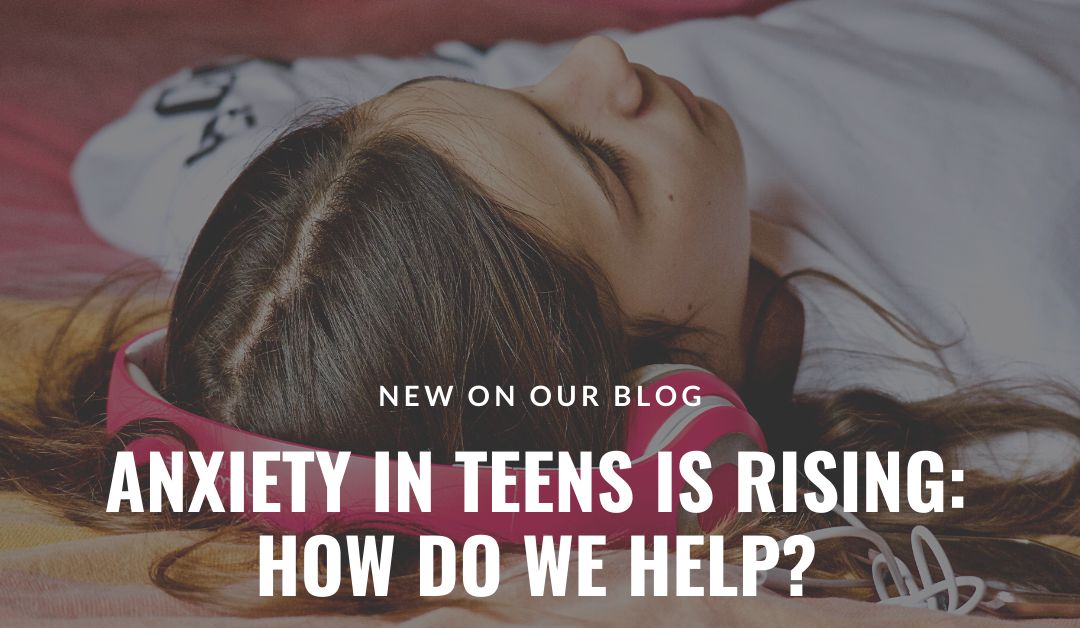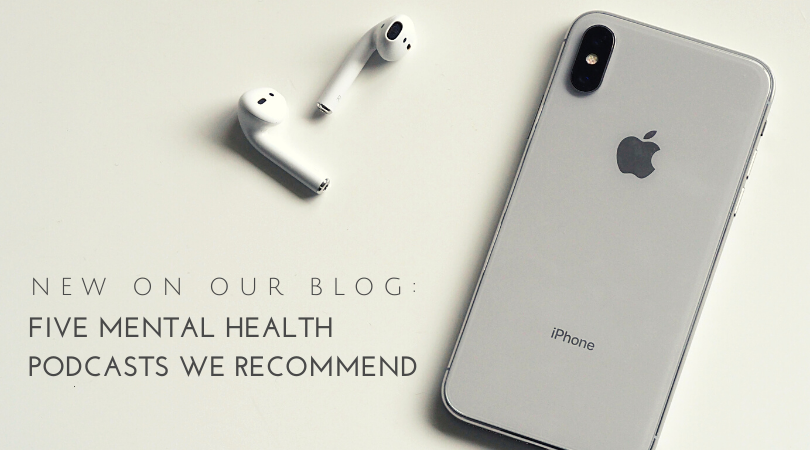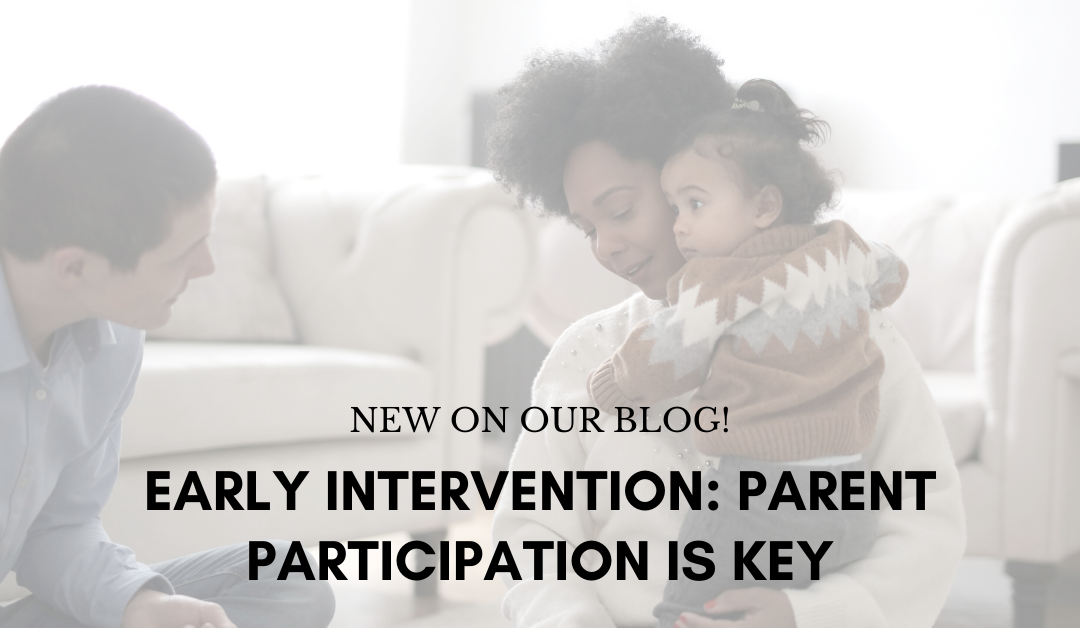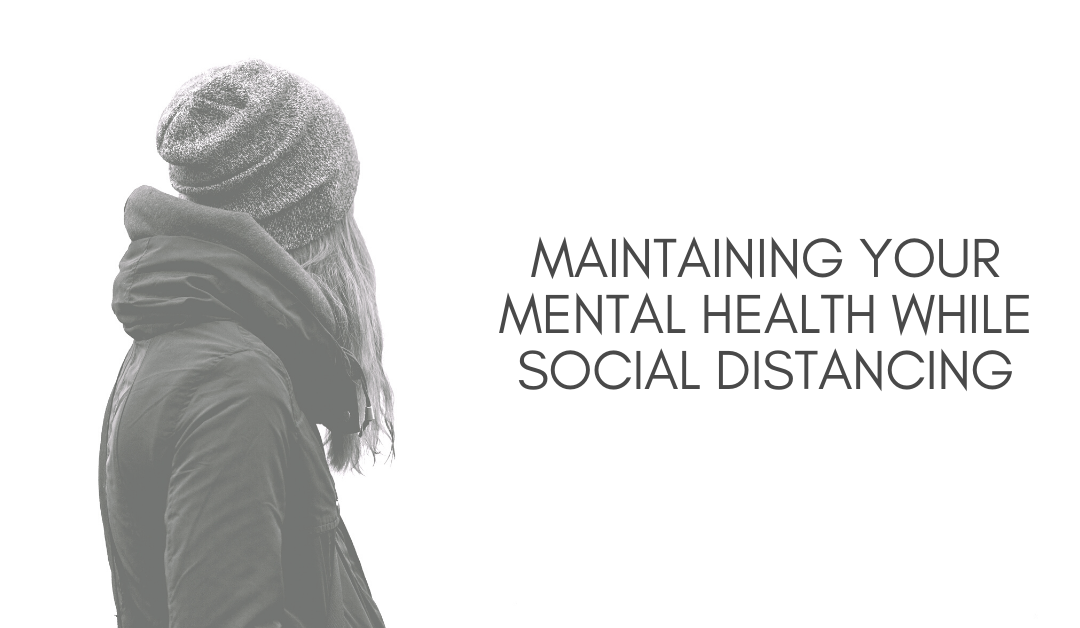
by Sara Hart | Jul 23, 2020 | Blog
The COVID-19 pandemic has led to sudden changes in the social lives and daily routines of teens. With social distancing being enforced and important school events such as prom and graduations being canceled, it’s natural for teens to feel devastated, anxious and disconnected. Nearly one in three teens between ages 13 and 18 will experience an anxiety disorder according to the National Institute of Mental Health. Now more than ever, it’s crucial we encourage our teens to prioritize their mental wellness. Below, we break down steps you can take to help your children maintain positive mental health.
Know the signs of anxiety.
It’s common for teens to feel as if they can’t effectively communicate what they’re experiencing, so these emotions manifest themselves into habits that could show anxiety. For instance, some adolescents feel the need to worry endlessly about routine parts of his or her day. Others also show changes in behavior such as increased irritability. Some may develop negative behaviors such as insomnia, school avoidance or substance abuse. Work with your child to establish healthy coping skills that will ease the stress of the daily struggles he or she faces.
Be mindful of the pressures put on your …

by Sara Hart | Jun 16, 2020 | Blog
Our nation is facing devastating and difficult times, and it’s so important – now more than ever – to maintain your mental health. If you already struggle with anxiety, depression or other mental health challenges, these days of isolation, inequity and uncertainty can be extremely troubling. There are several podcasts that focus on the importance of mental health, and they may inspire and inform you. Below, we’ve listed five podcasts that offer tips on how to combat symptoms and triggers of mental health challenges.
Millennial Mental Health Channel
Mental health is a hot topic for millennials, and this podcast addresses the impact it has on this generation. Hosted by a licensed psychiatrist and therapist, this podcast seeks to give listeners perspective on the world of mental health in bite-size chunks that make it easier to absorb and understand.
Cleaning Up the Mental Mess with Dr. Caroline Leaf
Looking for some quick and easy mental health tips to sprinkle into your busy life? Dr. Caroline Leaf, a cognitive neuroscientist and bestselling author, gives you tools to help take control of your emotional, physical and mental health.
Therapy for Black Girls
Clinical psychologist, Dr. Joy Harden Bradford, started this podcast to …

by Sara Hart | May 21, 2020 | Blog
Adults learn best through experience. Think about it – how often do you search YouTube or Google for how-to tutorials? It’s much easier to complete and master a task once you’ve seen how it’s done. At South Bay, we recognize this, and we infuse this thinking into our Early Intervention services. Going through a new experience – especially when it comes to raising a child with a developmental delay – can be stressful and scary. We understand, and our clinicians are here to help you every step of the way, as it’s a collaborative effort between the clinician and the parent. Below, we offer tips on how parents can ensure they’re actively engaging in intervention strategies, allowing their child to have the best possible beginning.
Engage in affectionate and nurturing interactions.
Holding, singing, rocking or talking to infants are interactions that might seem natural to parents. But, these exchanges are more fundamental to a child’s development than one might know. These connections provide your child with the stimulation his or her growing brain needs. Positive interactions send messages to your baby that he or she is valued. As a result, your child will grow up knowing to treat others in …

by Sara Hart | Mar 25, 2020 | Blog
As a society, we’re experiencing truly unprecedented times together. With the outbreak of the coronavirus (COVID-19), our normal daily schedules have been completely altered. Social distancing may be our best way to prevent further spreading of COVID-19, but we realize that at times, this can be a difficult process. South Bay wants to encourage you to take some time and find ways to best cope with stress and anxiety while practicing social distancing. Below we’ve outlined ways you can continue to care for your mental health during isolation.
Take a short break from the news
We understand that paying attention to news updates is more important than ever at this time, and you should stay informed. However, we encourage you to take some time away from your television, computer or phone screen each day. Listening to news cycles and scrolling through social media for long amounts of time can be upsetting and unhealthy. Read a book, try a new recipe or take on a new project at home to pass the time.
Take care of your body
Take breaks throughout the day to go on a walk or exercise in your home. When you begin experiencing feelings of stress or …

by Sara Hart | Feb 26, 2020 | Blog
When tragedy strikes, we stop to reflect on life and the realization that any moment could be your last day to spend time with a loved one or family member. Coping with the loss of someone or something you love and admire is one of life’s biggest struggles, but everyone deals with feelings of grief in different ways – and that’s completely normal. Below, we break down a few common myths surrounding the grieving process.
Myth #1 – If you don’t cry, you’re heartless.
Although crying is a recognizable sign of sadness, it’s certainly not the only one. People express pain in many different ways, and just because you don’t outwardly show it, doesn’t mean you feel nothing. It is valid to express your emotions in whatever way you see beneficial for you throughout the grieving process.
Myth #2 – The pain will go away if you ignore it.
Choosing to avoid emotional pain could only allow it to fester and become worse. For true healing to take place, try confronting your pain and proactively dealing with it. Consider talking through your emotions with a clinician, family member or friend if you feel that the burden is too heavy to …





